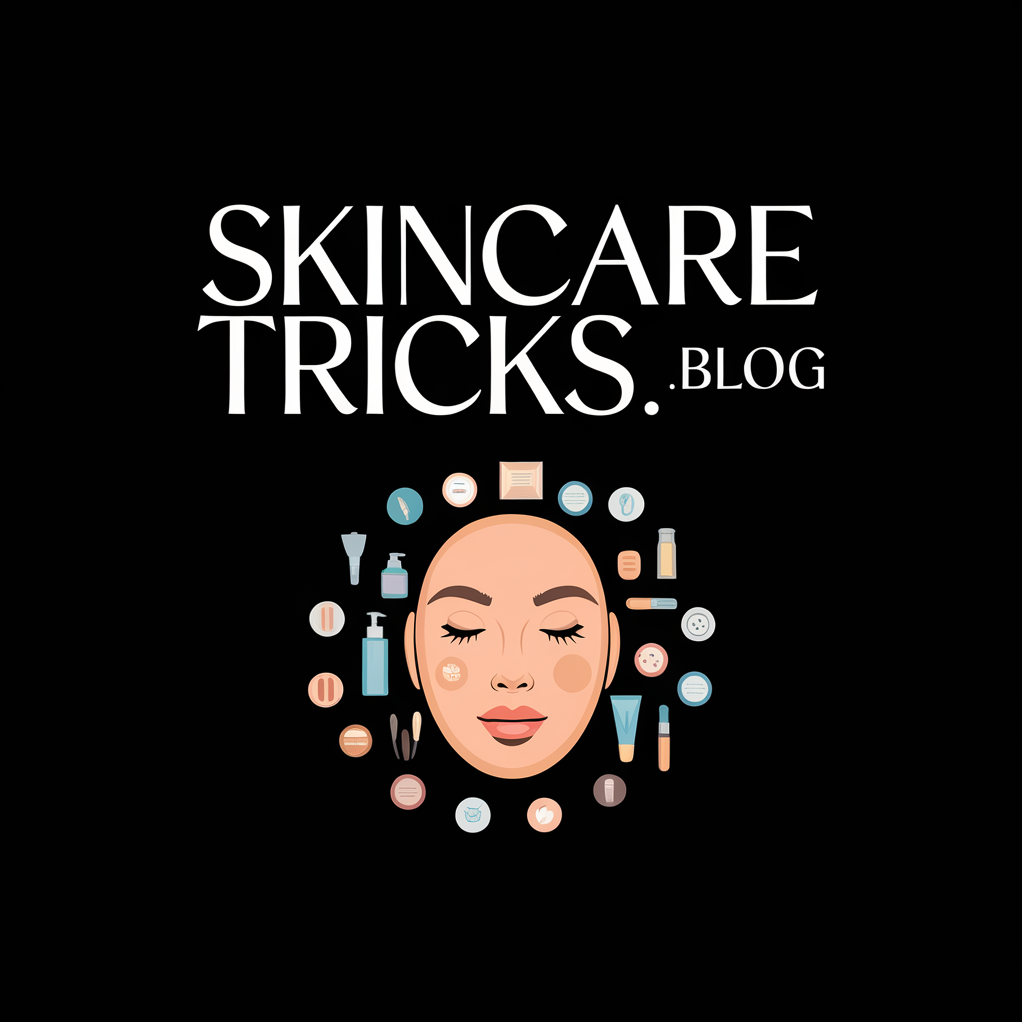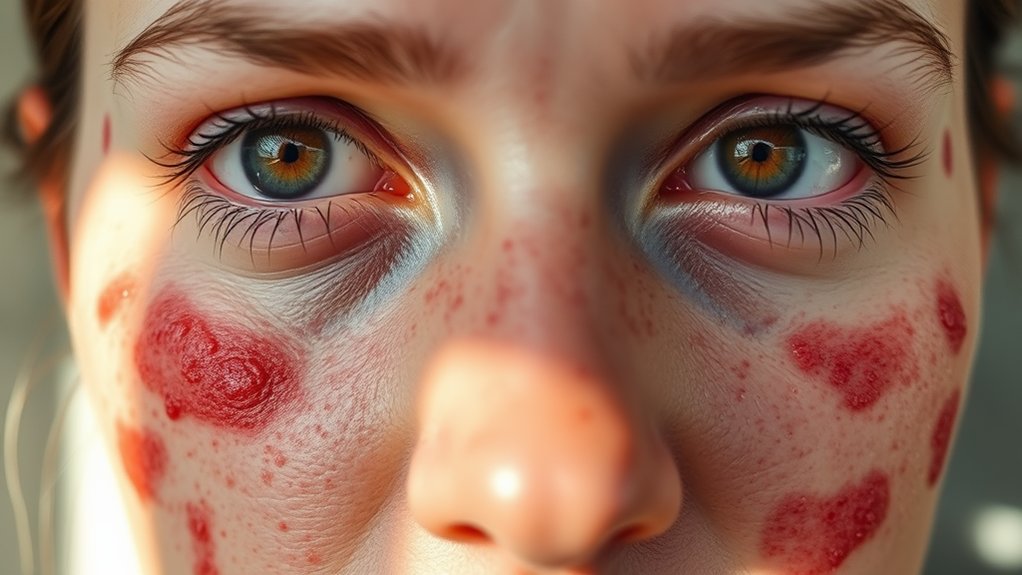Skin Breaking Out. This Could Be the Real Cause
It’s a coincidence that so many people experience skin breakouts, yet few understand the real causes behind them. Often, it’s not just about what products you use or how often you wash your face. Several factors influence your skin’s clarity, including hormonal changes and your diet. By exploring these underlying causes, you can take proactive steps to improve your skin health significantly. Discover what you might be overlooking in your daily routine and how it could be affecting your complexion.
Common Triggers of Skin Breakouts
Skin breakouts can be incredibly frustrating, often stemming from a variety of common triggers.
You mightn’t realize that your diet plays a significant role; high-glycemic foods like white bread or sugary snacks can exacerbate acne triggers. Additionally, stress is another major factor; when you’re stressed, your body produces more hormones that can lead to breakouts. Skipping routine skin care, such as regular cleansing or exfoliating, can also contribute to clogged pores. Lastly, environmental factors, including pollution and humidity, can trigger skin issues.
Identifying and managing these acne triggers can lead to clearer skin and improved confidence. Paying attention to foods high in omega-6 can also significantly impact your skin health.
The Role of Hormones in Acne Development
Hormonal fluctuations can significantly impact your skin health, often triggering acne outbreaks.
For instance, elevated testosterone levels can increase oil production, leading to clogged pores and inflammation.
Understanding these hormonal influences is essential for managing and preventing breakouts effectively. Recognizing the connection between stress hormones and skin health can help in formulating effective strategies for acne prevention.
Hormonal Fluctuations and Acne
Acne often becomes a frustrating companion during certain phases of life, largely due to the impact of hormonal fluctuations. Hormones like estrogen and progesterone can lead to increased oil production in your skin, contributing to blocked pores and breakouts.
For women, menstrual cycles, pregnancy, and menopause trigger these changes, often resulting in cyclical acne. During puberty, a surge in androgens amplifies oil production, making adolescents more prone to acne.
Managing these fluctuations through lifestyle choices, such as a balanced diet and stress reduction, can help you maintain clearer skin and minimize breakouts caused by hormonal changes.
Testosterone’s Influence on Skin
Testosterone plays a significant role in the development of acne, especially during periods of hormonal change.
As your testosterone levels rise, sebaceous glands produce more sebum, which can clog pores. This creates an environment where bacteria thrive, leading to inflammation and breakouts.
It’s common during puberty, menstrual cycles, or stress when testosterone spikes. Notably, both males and females can experience these fluctuations.
If you notice increased skin issues, consider evaluating your hormone levels. Addressing hormone imbalances through lifestyle changes or medical advice can help manage acne effectively while improving your overall skin health.
Impact of Diet on Skin Health
While many factors contribute to skin health, your diet plays a crucial role in determining your complexion. Consuming a balanced diet rich in vitamins and antioxidants can promote skin vitality.
Foods high in omega-3 fatty acids, like salmon and walnuts, reduce inflammation, while ample hydration helps maintain skin elasticity. Processed sugars and excessive dairy may trigger breakouts, clogging pores and promoting acne.
Incorporating colorful fruits and vegetables enhances your skin’s glow, providing essential nutrients. Be mindful of what you eat; a nutritious diet not only nourishes your body but also enhances your skin’s appearance and overall health. Additionally, embracing a nutritious lifestyle supports not only skin health but overall well-being.
Environmental Factors Contributing to Breakouts
Environmental factors play a significant role in your skin health and can lead to breakouts. Pollution in urban areas introduces grime and toxins that clog pores, while fluctuating weather conditions can alter your skin’s moisture balance. Understanding these influences is essential to developing a proactive skincare routine that minimizes your risk of breakouts. Additionally, incorporating antioxidant-rich fruits into your diet can help combat the effects of environmental stressors on your skin.
Pollution and Skin Health
As you navigate through urban landscapes, the unseen pollutants in the air can significantly impact your skin’s health.
Particulate matter, heavy metals, and chemicals can accumulate on your skin, leading to irritation, inflammation, and breakouts. These contaminants disrupt the skin barrier, making it harder for your complexion to retain moisture.
Additionally, pollution can generate free radicals, accelerating aging and causing dullness. Regular cleansing is crucial, as it helps remove these irritants and prevents clogged pores.
Investing in antioxidant-rich skincare products can also help combat the damaging effects of pollution, promoting clearer, healthier skin overall.
Weather Changes Impacting Skin
Changes in weather can significantly impact your skin’s condition, often leading to breakouts. Different environmental factors play a crucial role, affecting hydration and oil production. Here’s a quick overview of how various weather conditions can influence your skin:
| Weather Condition | Impact on Skin | Recommended Action |
|---|---|---|
| Humidity | Increased oiliness | Use lightweight moisturizers |
| Cold Temperatures | Dryness and irritation | Apply heavy moisturizers |
| Rainy Weather | Increased bacteria | Use non-comedogenic products |
| Hot Weather | Excess sweating | Cleanse regularly |
Stay mindful of these changes to maintain healthy skin.
Skincare Products: What to Avoid
When it comes to maintaining clear, healthy skin, the products you choose play a crucial role in your skincare routine. Avoid products containing alcohol, as they can strip your skin of its natural oils, leading to irritation and breakouts.
Fragrances, whether synthetic or natural, might also trigger sensitivities; go fragrance-free to minimize risk.
Heavy oils and comedogenic ingredients can clog pores, so opt for non-comedogenic labels. Finally, steer clear of harsh exfoliants that can damage your skin barrier, promoting inflammation. Understanding ingredient interactions with skin is crucial in preventing further breakouts.
Stress and Its Effects on Your Skin
While you may not always realize it, stress plays a significant role in the health of your skin. When you’re stressed, your body releases hormones like cortisol, which can increase oil production and lead to breakouts. This heightened oiliness clogs your pores, resulting in acne and dull skin.
Stress can also trigger inflammatory responses, exacerbating conditions like eczema and psoriasis. Sleep deprivation due to stress further hinders skin regeneration, making it look tired and aged.
Managing stress through relaxation techniques, exercise, and proper sleep is essential for maintaining clear, healthy skin and promoting an overall radiant complexion.

